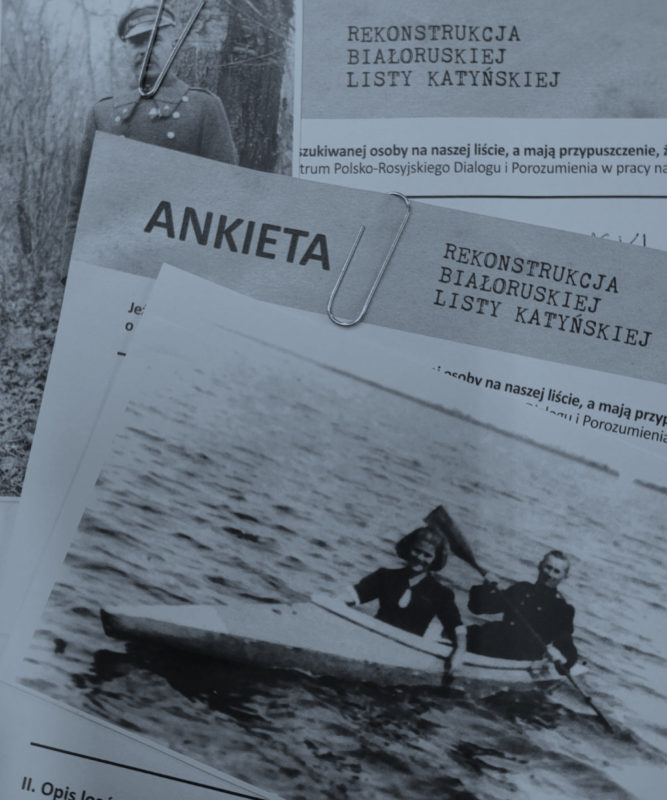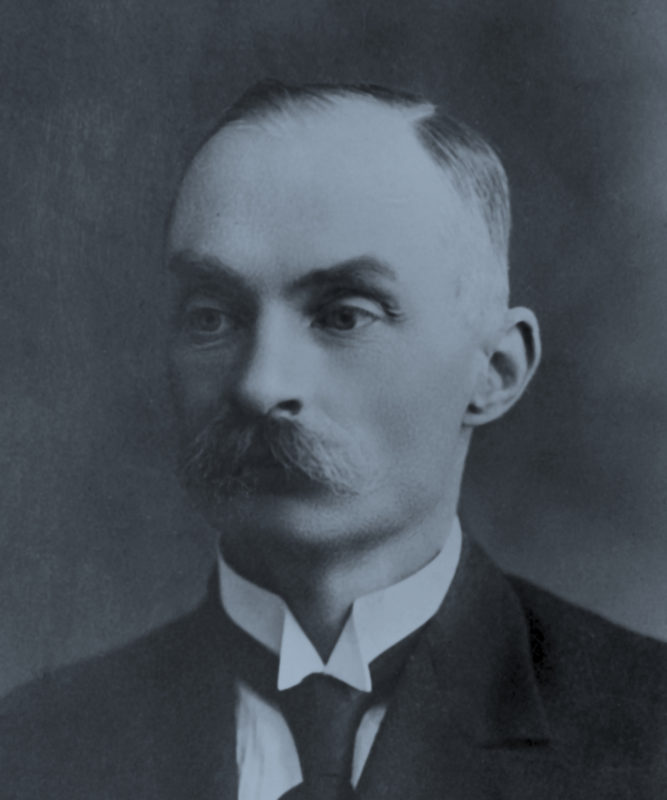f
"The memory could not be destroyed." It is a force that can win against the apparatus of a totalitarian state. The memorial site restores the dignity of the victims and gives peace and a sense of justice to their descendants and relatives. That is why we are still fighting to find the missing victims, where their bodies are hidden and to give them the burial they deserve.
Watch the video
Hope
Today, the victims of the Katyn Massacre are buried alongside other Victims of the communist regime. The truth about Soviet repression is still negated, denied and relativised. The crosses put in Kuropaty serve as a proof of faith and hope. They signify the feelings that unite Poles, Belarusians, Ukrainians, Russians and other nations in the quest for truth and a dignified burial of family members.
The search
In the spring of 1940, families lost contact with their imprisoned relatives: the correspondence would be sent back, and questions about their fate remained unanswered. And yet, the memory survived for generations: today, the children, grandchildren and great-grandchildren of the Victims of the Massacre are still looking for traces that would enable them to establish the date of death and the resting place. To this day, the fate of at least 3,870 Victims from the so-called Belarusian Katyn list remains unknown. Are their bodies buried in Kuropaty?
Listen to the voices

From letters addressed to the Centre for Polish-Russian Dialogue and Understanding
as part of the project to reconstruct the Belarusian Katyn List
„My grandfather, whom the NKVD moved out of his home in September or October 1939 does not appear on any lists and all trace of him was lost.” “You have included the name of my half-sister in the online-version of the Belarusian list. For many years I have been searching in vain for information about her fate and that of my mother’s family...” “Acting on behalf of my grandmother, would you kindly assist me in determining the place of death of my great-grandfather, her father...” “Please could you try and determine the fate of my Father...” “I am submitting the details of my brother, who went missing after 17th September 1939.” “I am sending you information about my missing uncle; it may be useful in identifying those on the Belarusian list.” “I would like to register my grandfather on the reconstructed Belarusian Katyn list...” “I am looking for information about where my uncle died and his final resting place. There’s brief information...”

A comb with inscription
recovered from the death pits during the exhumation in Kuropaty
Read by Ian McQuillan-Grace
„Hard time in prison, Minsk 25th April 1940. The thought of you leads me to despair.” On the other side: „26th April. I burst into tears. A tough day”.

Konstanty Rdułtowski
Memories from Minsk prison
Read by Philip Lenkowsky
Prison in Minsk (…) No fresh air, the odour of 120 people, sweaty and mostly sick, the crush of people not giving even a moment of rest, dozens of half-naked bodies lying on the floor, lice, which in these conditions appeared in large numbers, and the restlessness and excitement brought about by it all generally gave the impression of being in hell. I did not envision that I would ever see such Dantean scenes in my life like those I witnessed in this cell during my six-month stay there. (…) At the end of April or the beginning of May [1940] they took Kazia, Stefan Rdułtowski, Jan Mierzejewski and Mieczysław Kotarbiński. Others were packed into the cells in their place. However, to date they have not been found.